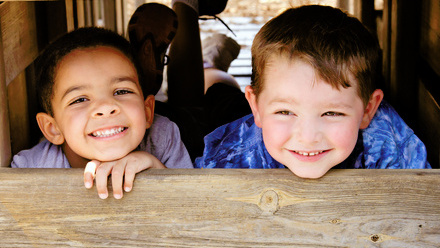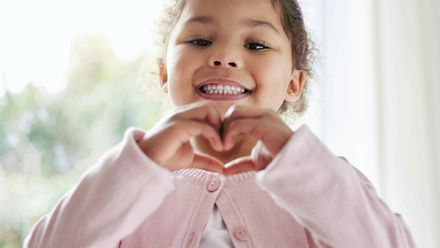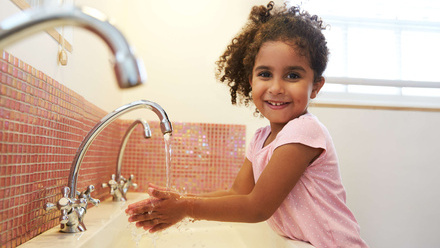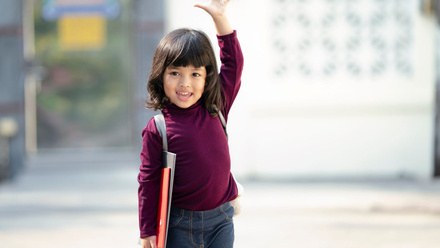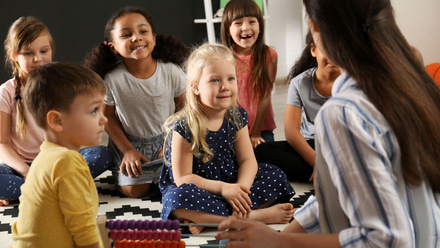Understanding self-regulation with young children
Self-regulation is an life-long skill that is vital for a happy and healthy future. It is a skill that we are constantly developing through life, but it is vital to ‘get it right’ from the start in order to give children the best chance of developing strong resilience for life’s challenges, overcoming a myriad of emotional responses and acknowledge complex cognitive functions.
In this article, we are going to have a look at understanding self-regulation in young children, how self-regulation develops and what we can do, as early education and care professionals, to support children to thrive.
It’s a buzzword in education, but what does self-regulation mean?
Broadly speaking, self-regulation refers to children’s “ability to regulate their emotions, thoughts and behaviour to enable them to act in positive ways towards a goal”. It is about being able to take greater control of our thoughts, feelings and executive function – how we manage impulses and adapt to change.
There are a variety of self-regulation types, even one starting to develop at birth, such as babies’ biological self-regulation as they learn to gauge body temperatures and reflexes. But the most commonly discussed type of self-regulation relates to emotional and cognitive regulation. Let’s have a look at the two:
Emotional self-regulation concerns a child’s ability to recognise their feelings, articulate their emotional reactions and control their emotional responses. Children often express their challenges with complex emotions through adverse behaviour that can be tricky to manage, for both the child and grown-ups involved. Building strong emotional self-regulation strategies allows children to predict emotional reactions before they become overwhelming and regulate this independently or are able to ask for help if needed.
Cognitive self-regulation is all about our decision-making. Ability to cognitively self-regulate allows children to make good decisions to solve problems, build greater resilience to overcome challenges and control impulsive behaviours that might not also be the best way to act.
Why is self-regulation in young children important?
Self-regulation skills are the initial foundations for essential development not only in a child’s formative years but throughout their life. Just as we never stop learning new things, we never cease to grow through our ability to self-regulate but it’s crucial that these skills are nurtured throughout childhood to ensure children can thrive in their futures.
In fact, there is growing evidence to suggest that “it might be too late to intervene effectively during primary or secondary education”, which is why every moment counts in a child’s early years when it comes to developing regulation techniques. Effective self-regulation skills pave the way for children to overcome challenges through life, build their confidence to learn and grow with others, communicate effectively and build secure attachments throughout their childhood and beyond. It is an essential skill for a reason, and early education and care provision plays an important part in supporting children to flourish.
Whilst most children, by the age of three, are beginning to articulate their feelings and recognise a variety of emotions in themselves and others, self-regulation starts from birth, through a process called co-regulation. Co-regulation refers to how primary care-givers support babies in moments of stress, providing them with opportunities to internalise self-soothing methods with a ‘safe’ person to whom they are attached. As babies develop a stronger sense of what it means to regulate feelings, they are able to cultivate their own responses and become less reliant on co-regulating.
It is important to recognise how children come to be able to self-regulate in order to develop the most effective approach for supporting children to continue in this vein as they grow.
Here are some simple changes you can make to your practice to support self-regulation for toddlers:
Sign in boards
It’s great for children to gain a sense of belonging and independence in their early education and care setting from the very start of the day. Self-register boards are a useful way to encourage children to participate in the community of the setting and ‘check-in’ with themselves at the same time. Boards can work in a variety of ways but are often used to identify their name and picture, move it to a new place, and identify how they are feeling today using an emotions indicator tool.
Create a calm-down box
Calm-down boxes are resources that are collected and curated to promote self-soothing strategies for children who have become dysregulated and overwhelmed. Providing clear access to a quiet and safe space for children to use these resources freely encourages children to recognise their own feelings and predict challenges before they become unmanageable. By ensuring everyone understands the purpose of the box and their open welcome to it, we also build a strong sense of responsibility and trust within the classroom for respecting space and building empathy for other children’s needs.
Pay attention to routine
Another important aspect of self-regulation in young children refers to a child’s ability to act rationally and control impulsive behaviour. Being able to turn-take, wait for others and follow instructions all make up aspects of cognitive self-regulation and routines can be used to strengthen this in many ways.
Visual timetables can be a useful resource for circle time activities, informing children of not only what is happening in the present but to give them a full picture understanding of what to expect throughout the day. If children know something exciting is happening in the afternoon, it can sometimes be challenging for them to contain the ‘fizziness’ inside. Developing upon this sense of anticipation and having conversations about why it is valuable to wait all contribute to building greater respect for delayed gratification and impulse control too. When it comes to impulse control, it is important to acknowledge the challenge they might be facing and reward positive attitudes too.
Key takeaways
We know that self-regulation plays an unparalleled part in supporting healthy, well-rounded development and wellbeing for children and is shown to be an essential element when it comes to tackling the socio-economic attainment gap for disadvantaged children. In order to give every child the best start in life, early education and care professional must be equipped with the tools to provide nurturing co-regulation for infants and support effective self-regulation with toddlers as they continue to grow.
Do you want a more in depth training? Why not explore training opportunities to support self-regulation with NDNA?

